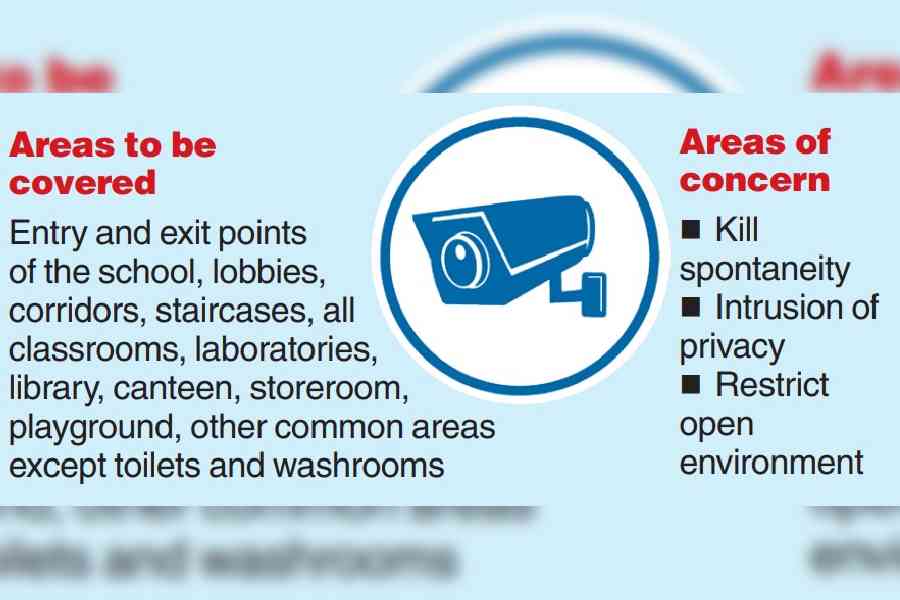The Central Board of Secondary Education (CBSE) has directed schools to install high-resolution CCTV cameras with audio-visual recording capabilities across virtually all campus areas, raising concerns about student privacy and natural development.
The new policy requires real-time audio-visual monitoring of entry and exit points, classrooms, canteens, staircases, corridors, laboratories, and playgrounds. Only washrooms and toilets are exempt from surveillance. Schools must maintain 15-day backup recordings accessible to authorities when required.
The CBSE’s directive stems from National Commission for Protection of Child Rights (NCPCR) guidelines addressing multiple safety concerns — from violence and abuse to natural disasters and transportation risks. The board amended Chapter 4 of its Affiliation By-Laws 2018 to incorporate mandatory surveillance as part of physical infrastructure requirements.
“Safety of students is one of the paramount responsibilities of a school,” the CBSE stated, citing protection from “unsocietal elements” and threats to children’s overall well-being, including bullying. The notification was sent to school heads and managers on Monday.
Currently, most schools have visual-only CCTV systems, with audio recording limited to reception areas, administrative buildings, and the principal’s offices, where outsiders and parents typically visit.
Mixed feelings
School principals and psychiatrists question whether comprehensive surveillance helps or hinders child development. The primary concern: constant monitoring could eliminate the spontaneity essential for healthy social growth.
“The reason for installing CCTV cameras is to prioritise safety and security, but simultaneously, it intrudes on a child’s privacy and restricts the open environment that children need in school,” said Madhumita Sengupta, principal of BDM International.
Sengupta emphasised that schools often provide children’s only opportunity for genuine physical interaction, especially given existing social media restrictions. “If there are restrictions on natural playground behaviour and free conversation, it might impact children’s emotional health,” she warned.
Teachers’ concerns
Teachers worry about creating an oppressive atmosphere. “A Big Brother watching over at all times would kill the spontaneity and freedom of interpersonal relationships,” one educator noted.
Satabdi Bhattacharjee, principal of The Newtown School, argues that prevention requires human intervention, not just cameras. “A CCTV cannot prevent an incident, but it helps with the investigation afterwards. For preventing anything untoward, human vigilance from teachers and staff is paramount,” Bhattacharjee said.
She stressed that children need space for natural development, including learning appropriate language use through trial and error — behaviour that might appear problematic under constant surveillance.
Defensive measure?
Psychiatrist Jai Ranjan Ram suggests the policy reflects schools’ defensive response to increasingly aggressive parents rather than genuine safety enhancement.
“Parents have become more demanding and there’s overall mistrust of authorities,” Ram argued. “Often, parents accuse schools of inadequate supervision when children face bullying or minor incidents. This is more of a defence mechanism.”
However, psychiatrist Ram warns about the surveillance’s psychological impact: “If you’re constantly watched, you cannot share jokes, comment about teachers, or engage in normal peer interactions.”
Arun Dasgupta, principal of Bhavan’s Gangabux Kanoria Vidyamandir, believes superficial technological solutions miss deeper issues. “In society, there’s so much hatred, anxiety, and agony. Naturally, that percolates to students and pollutes their minds,” he said.










